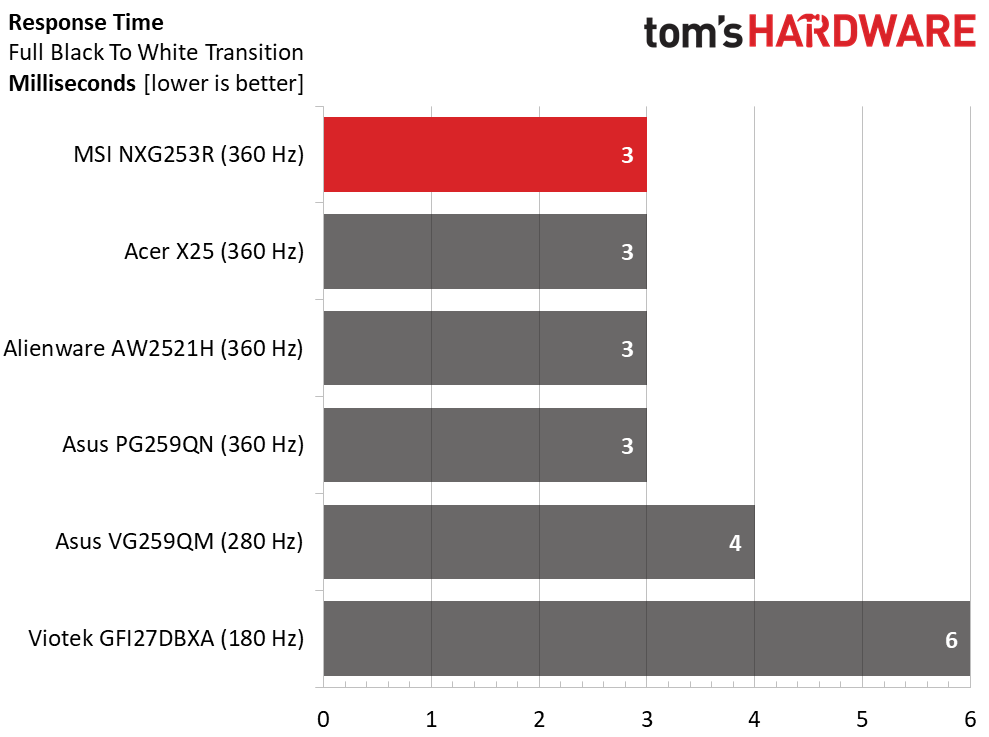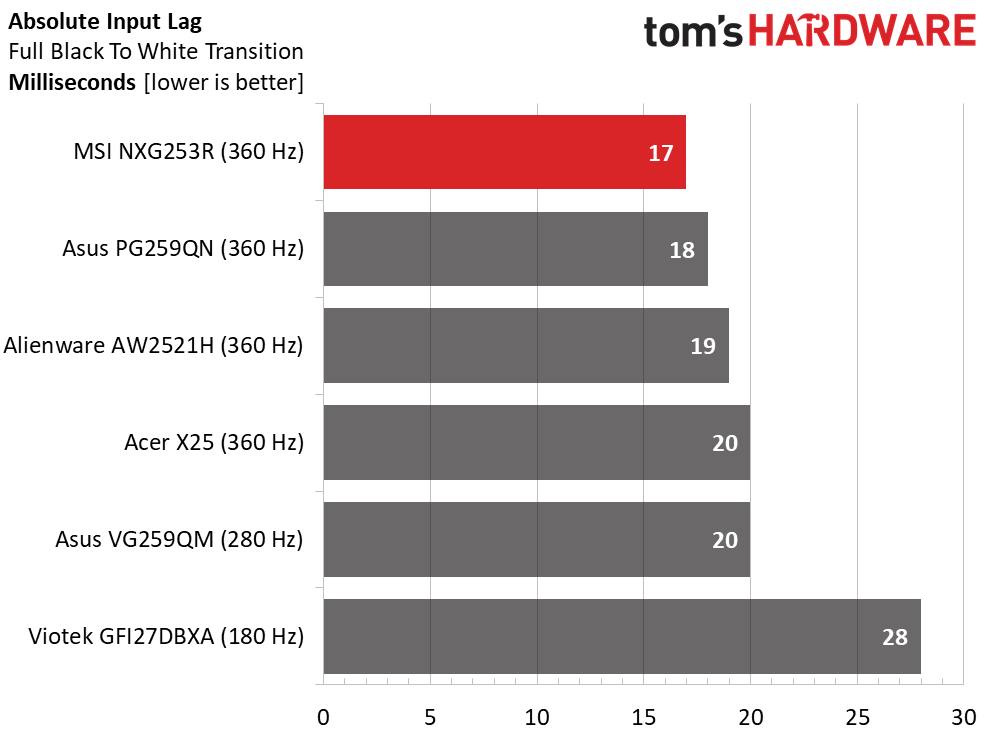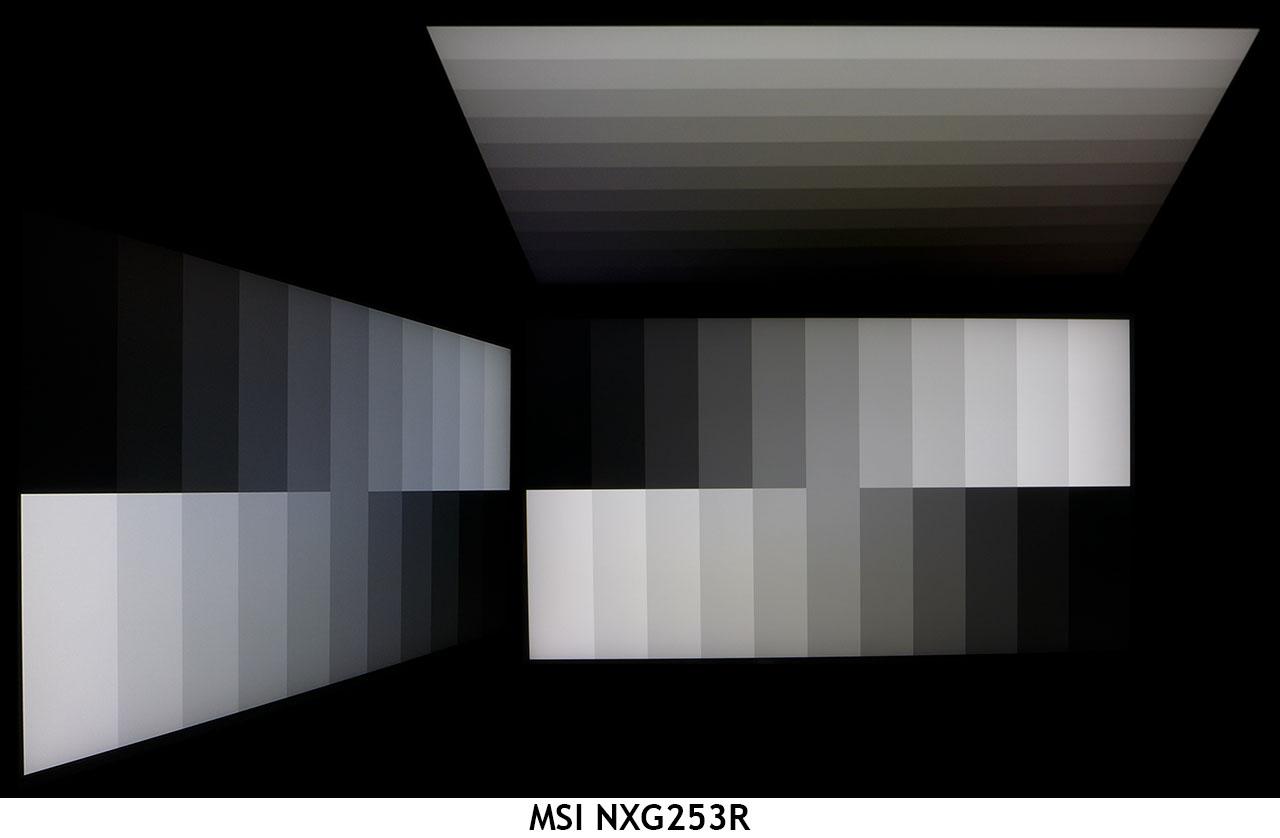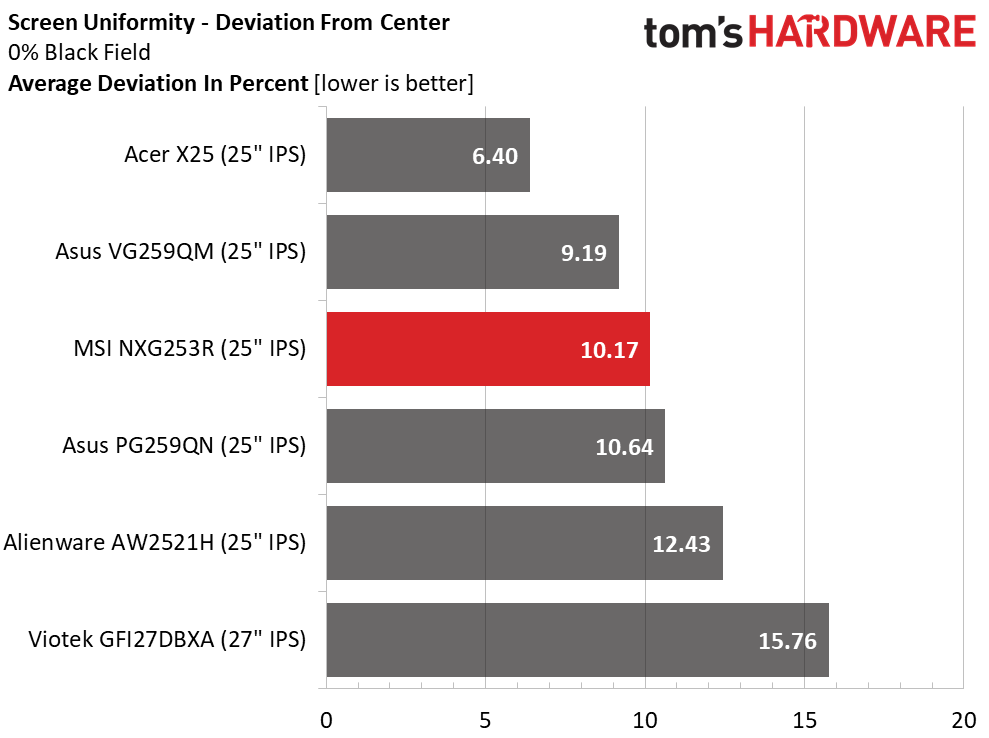Why you can trust Tom's Hardware
Viewing Angles
The NXG253R delivers average off-axis image quality when compared to other IPS screens. The reduction in light output is low at just 10%, you can see a blue shift. The top view is reddish green with a 40% light reduction and some loss of detail. At 25 inches, this monitor is not likely to be shared though. Sitting on-center means you’ll see a clear and bright picture.
Screen Uniformity
To learn how we measure screen uniformity, click here.
Our NXG253R sample had a slightly hot center zone. The surrounding screen area was free from visible glow or bleed. Visually, there was no problem in any of the field patterns we observed. Color uniformity was also perfect.
Pixel Response and Input Lag
Click here to read up on our pixel response and input lag testing procedures.


Here we are, the reason for the NXG253R’s existence. It is now the fastest monitor we’ve ever tested. Though it matches the other 360 Hz screens with a 3ms draw time, it has lower input lag. Though the difference is small, it’s enough to set it apart. With perfect overdrive and Adaptive-Sync, the MSI delivers perfect motion resolution at any framerate. You won’t need to bother with ULMB; it’s no clearer.
Since we have only four 360 Hz screens in our database, we included the 280 Hz Asus VG259QM and the 180 Hz Viotek GFIDBXA in our group. Though they aren’t quite as liquid-smooth as the faster panels, they come very close in visual performance for less money. The Viotek has the additional factor of a tremendous color gamut and equally good HDR quality. Food for thought.
Get Tom's Hardware's best news and in-depth reviews, straight to your inbox.
Current page: Viewing Angles, Uniformity, Response and Lag
Prev Page HDR Performance Next Page Conclusion
Christian Eberle is a Contributing Editor for Tom's Hardware US. He's a veteran reviewer of A/V equipment, specializing in monitors. Christian began his obsession with tech when he built his first PC in 1991, a 286 running DOS 3.0 at a blazing 12MHz. In 2006, he undertook training from the Imaging Science Foundation in video calibration and testing and thus started a passion for precise imaging that persists to this day. He is also a professional musician with a degree from the New England Conservatory as a classical bassoonist which he used to good effect as a performer with the West Point Army Band from 1987 to 2013. He enjoys watching movies and listening to high-end audio in his custom-built home theater and can be seen riding trails near his home on a race-ready ICE VTX recumbent trike. Christian enjoys the endless summer in Florida where he lives with his wife and Chihuahua and plays with orchestras around the state.
-
helper800 Reply
Even if we had them right now they would be nearly useless. Even CS:GO only gets about 500-550 fps with the best hardware available. Anything in excess of that is useless on a monitor at 1000hz refresh rate.dimar said:How long before we get 1GHz screens? -
escksu Replydimar said:How long before we get 1GHz screens?
I guess you meant 1khz, 1ghz is 1 billion frames per sec. -
Chrys Reply
I was laughing when I read that. I just took it as going to the absurdly far extreme.escksu said:I guess you meant 1khz, 1ghz is 1 billion frames per sec. -
dimar Reply
You're totally correct! I meant 1 MHzChrys said:I was laughing when I read that. I just took it as going to the absurdly far extreme. -
helper800 Reply
You mean 1 KHz. 1 MHZ is 1,000,000 frames per second.dimar said:You're totally correct! I meant 1 MHz -
mihen We already have screens that refresh every 0.001ms . OLEDs. The issue with OLEDs on refresh rates is down to the 4k native resolution, large screen size, and cable standard. If you run the screen at 1080p, you can go to a very high refresh rate.Reply -
helper800 Reply
Do you have any source material I can read on that? As far as I am aware the response time of the technology has nothing to do with its capabilities of displaying higher Hz refresh rates.mihen said:We already have screens that refresh every 0.001ms . OLEDs. The issue with OLEDs on refresh rates is down to the 4k native resolution, large screen size, and cable standard. If you run the screen at 1080p, you can go to a very high refresh rate.

